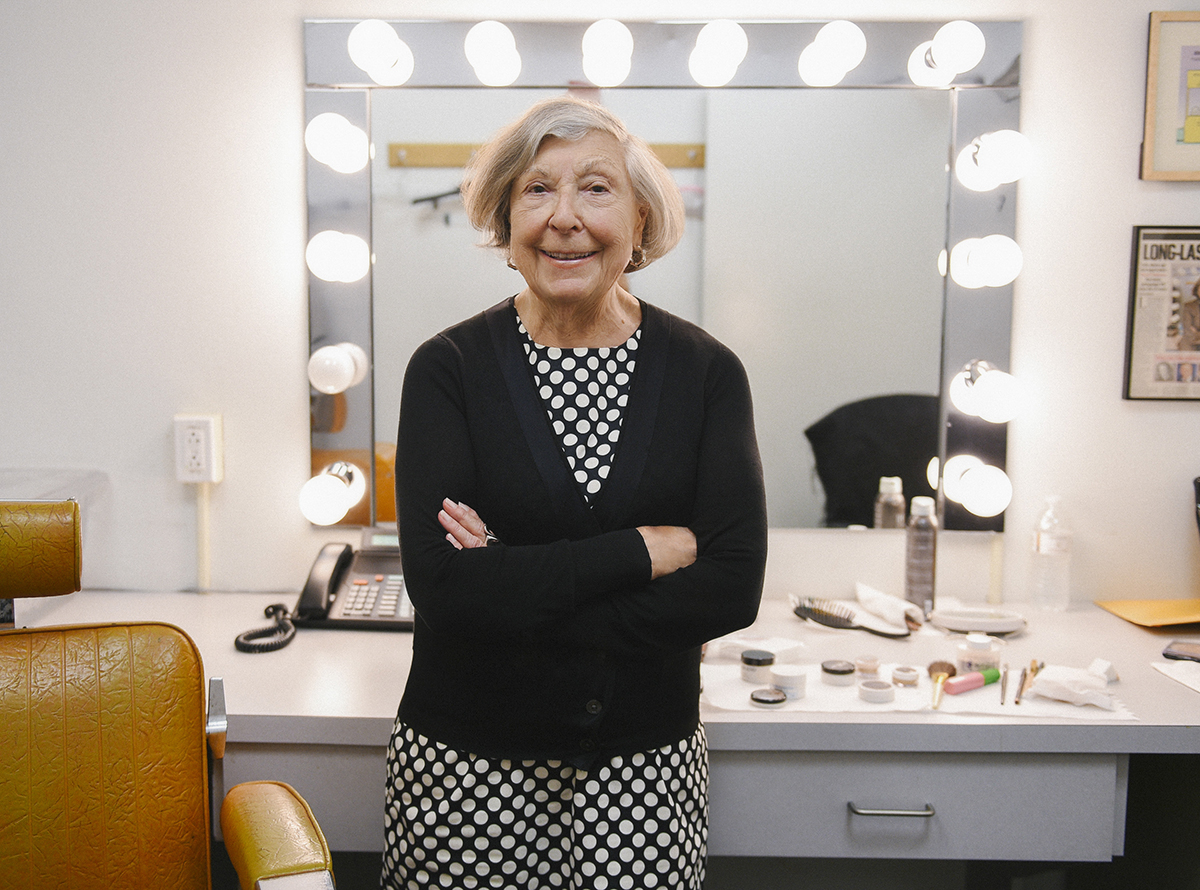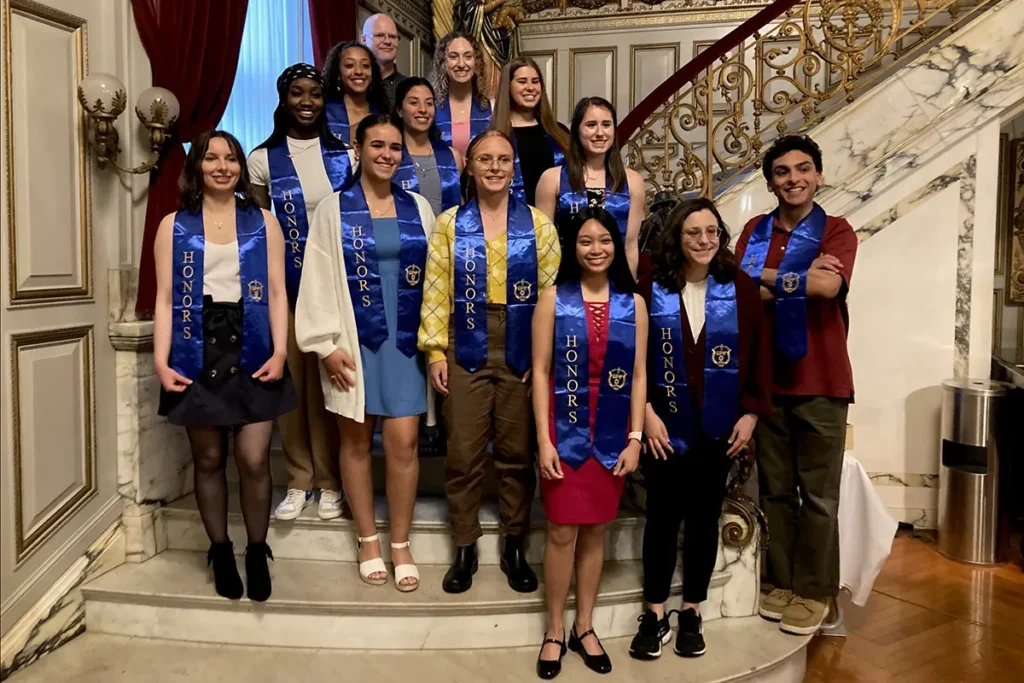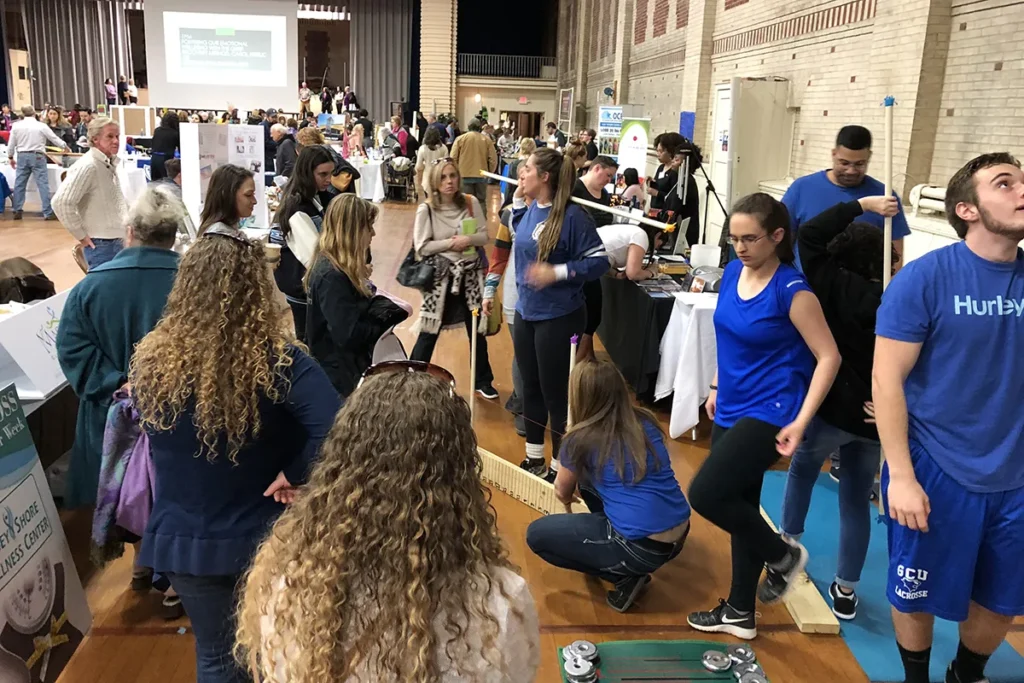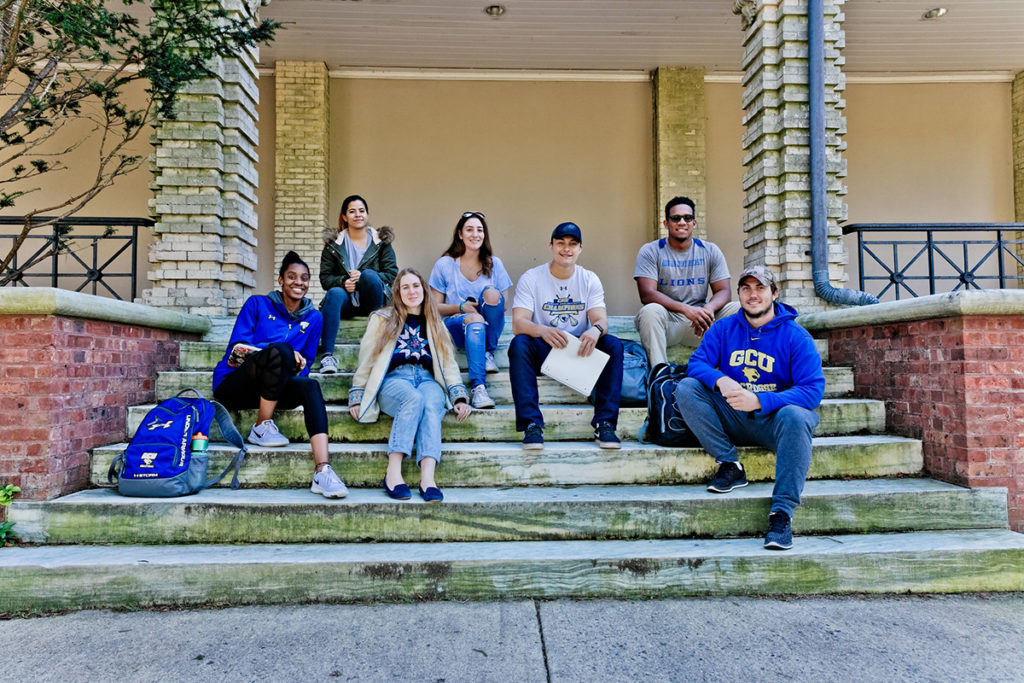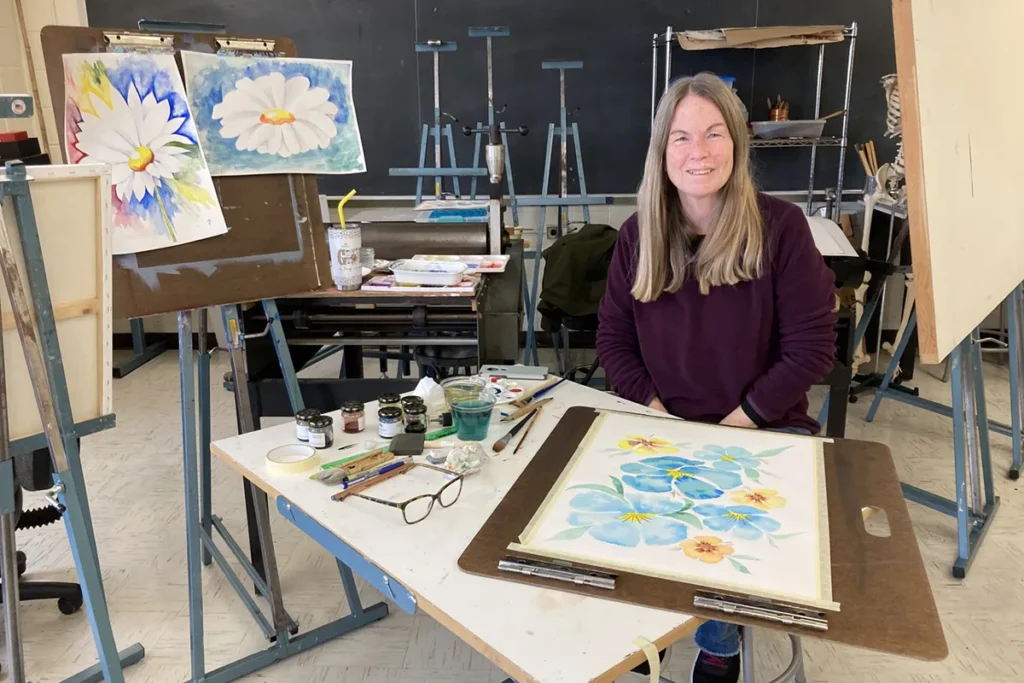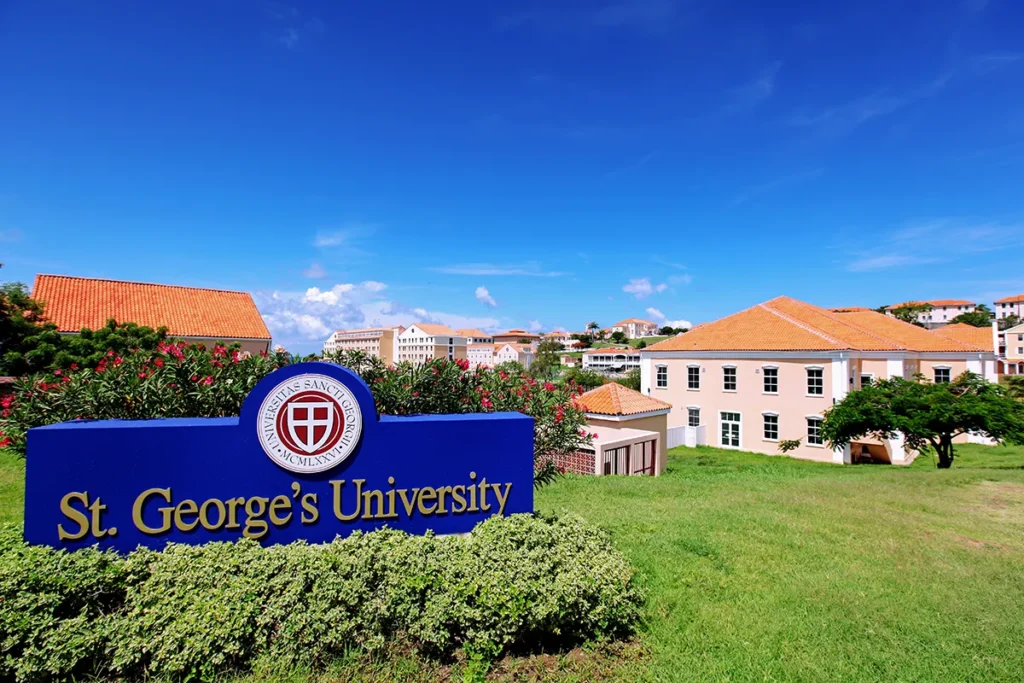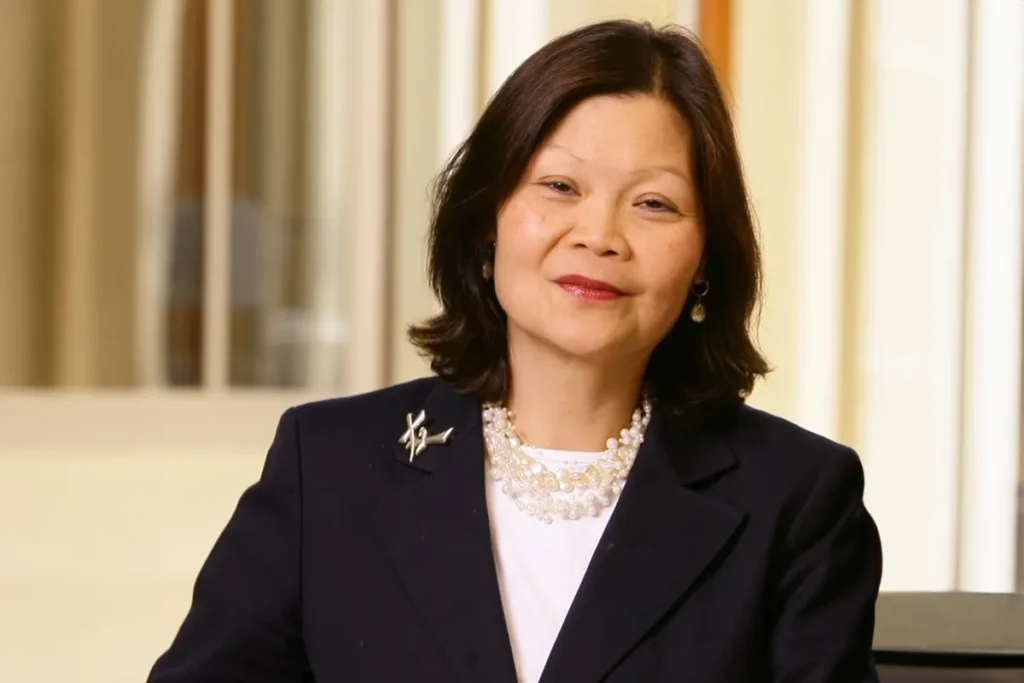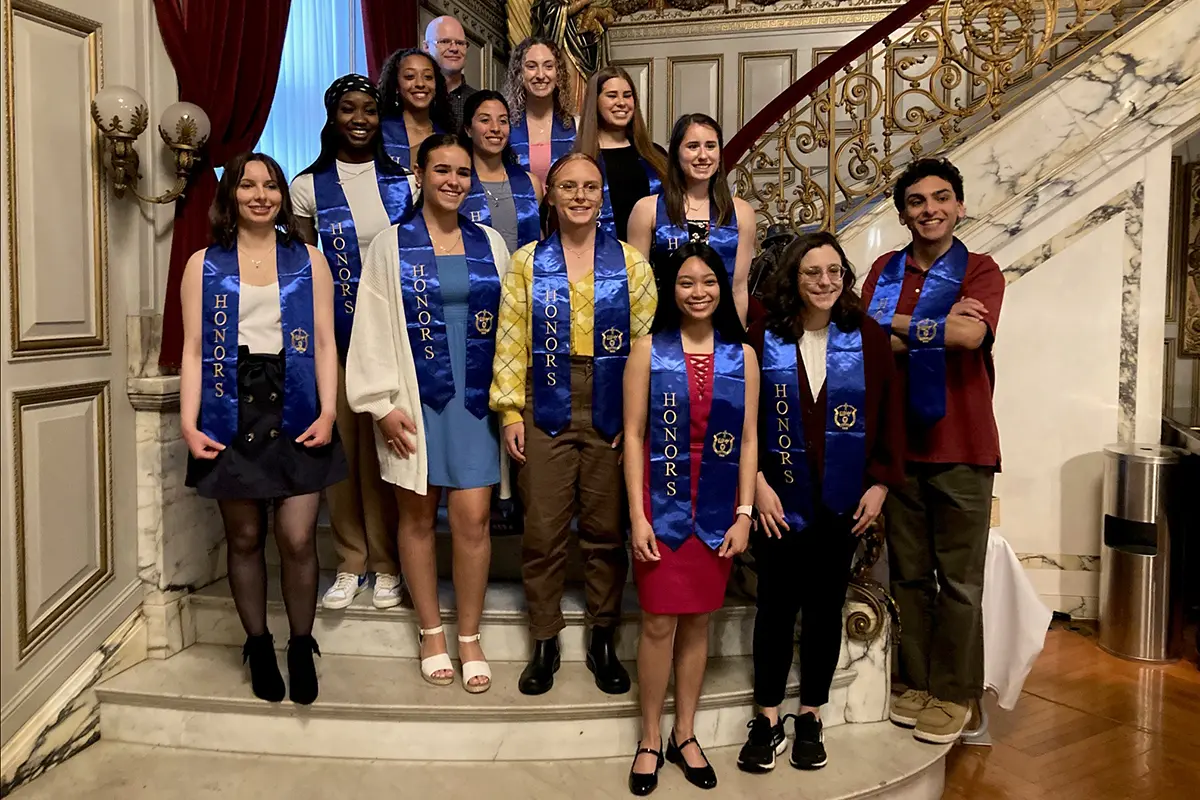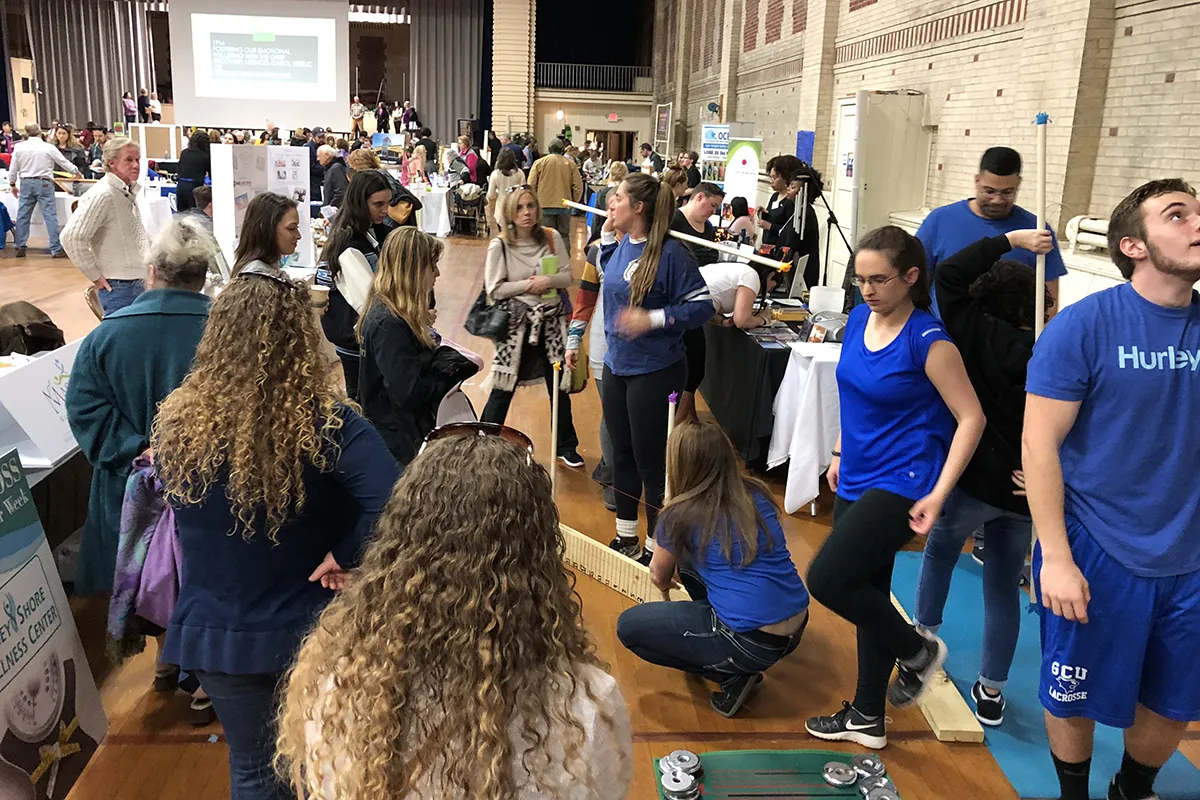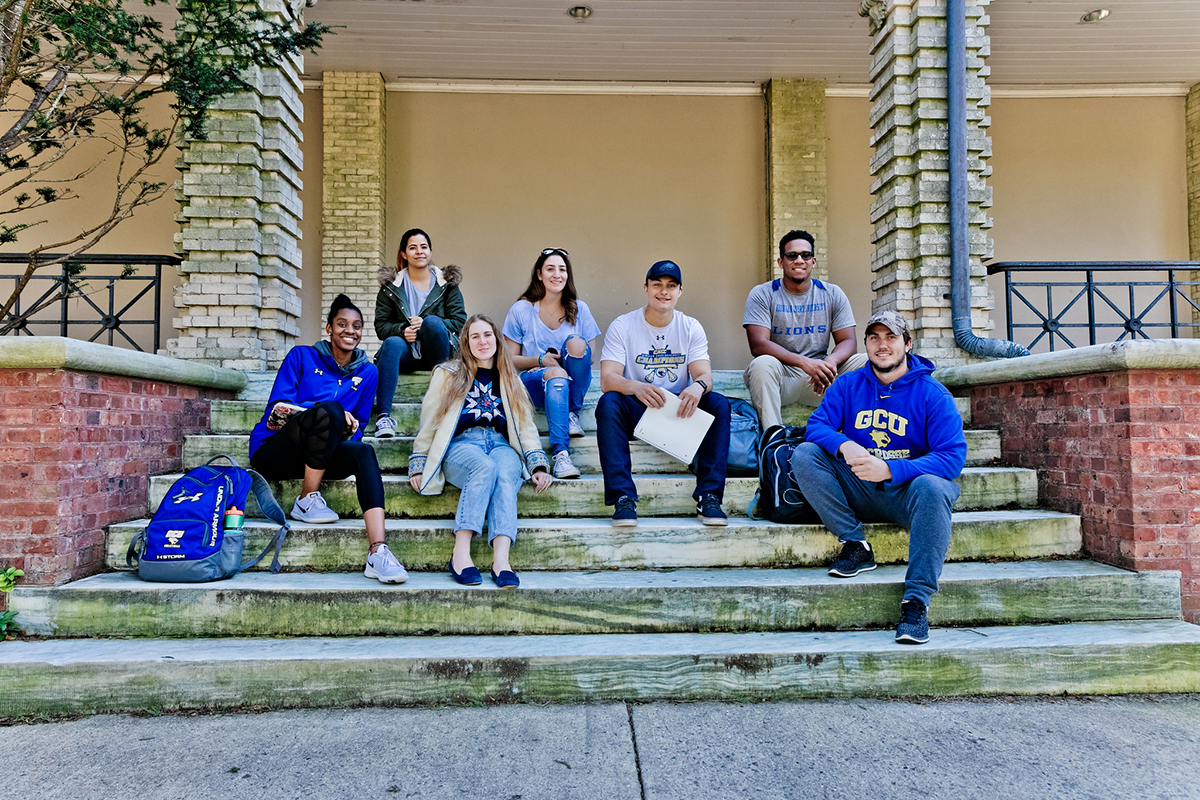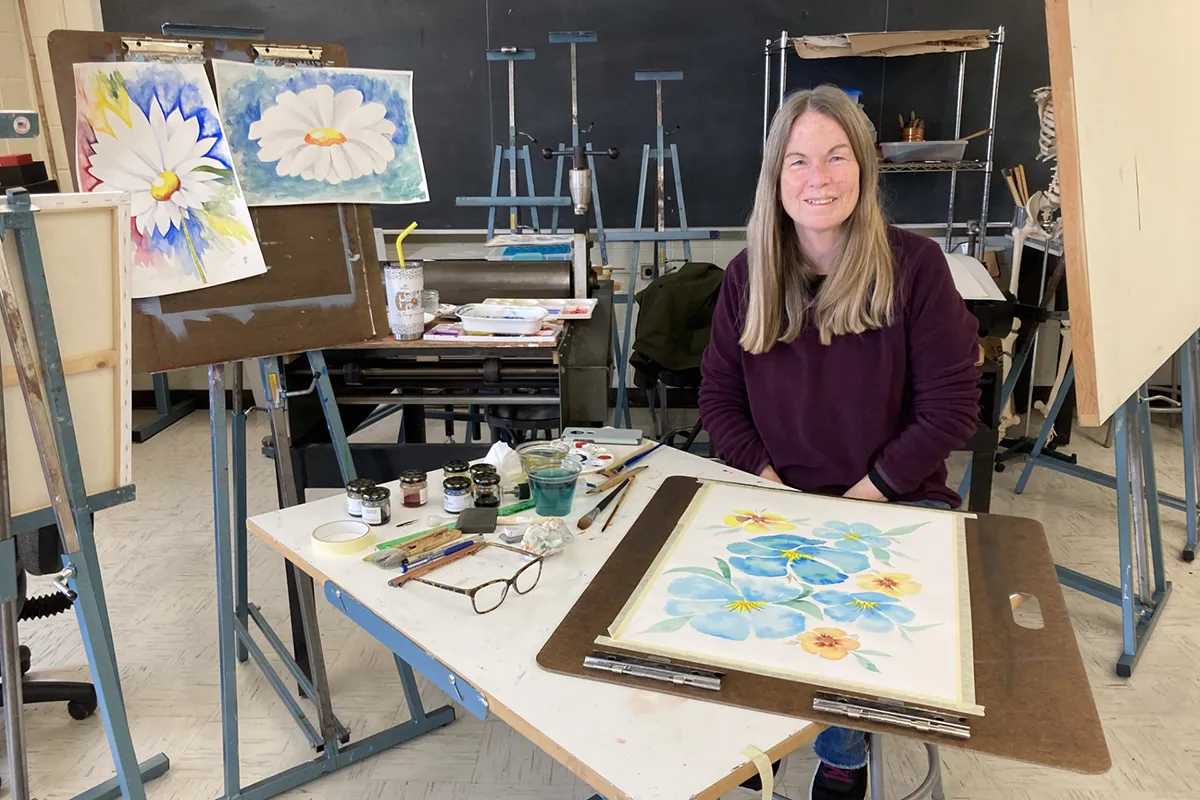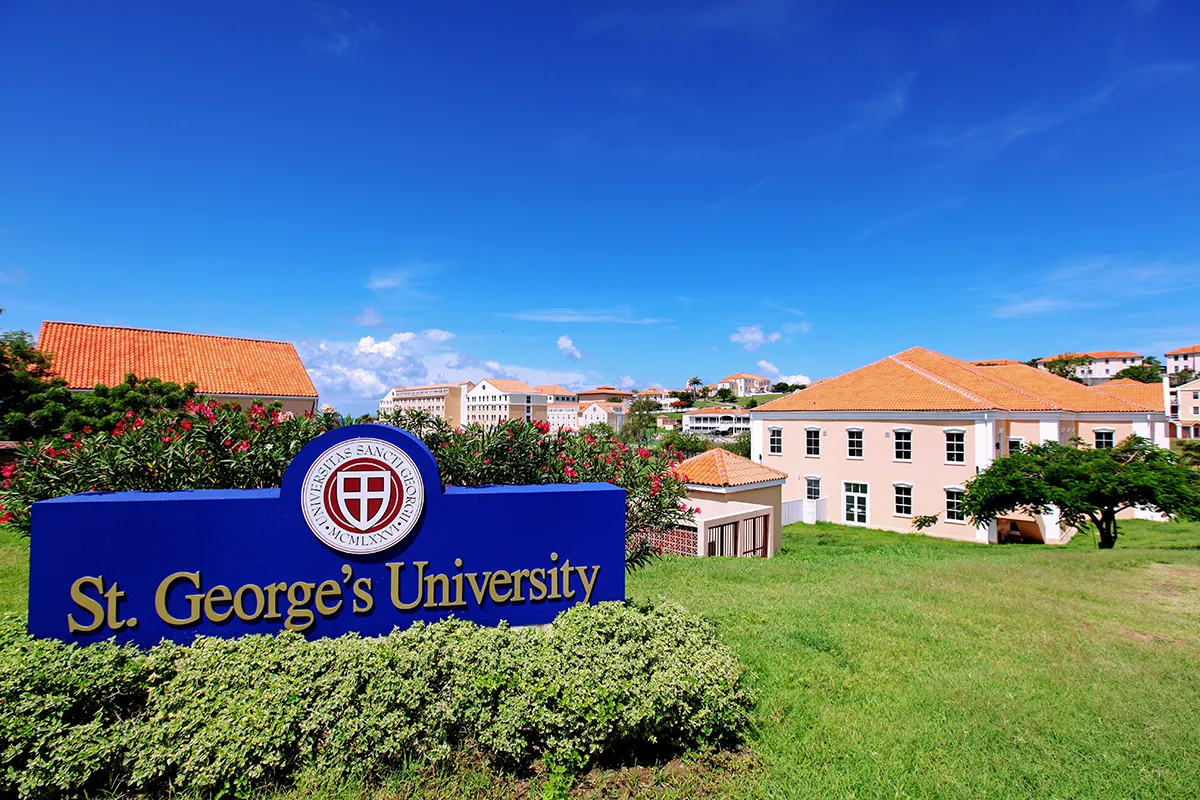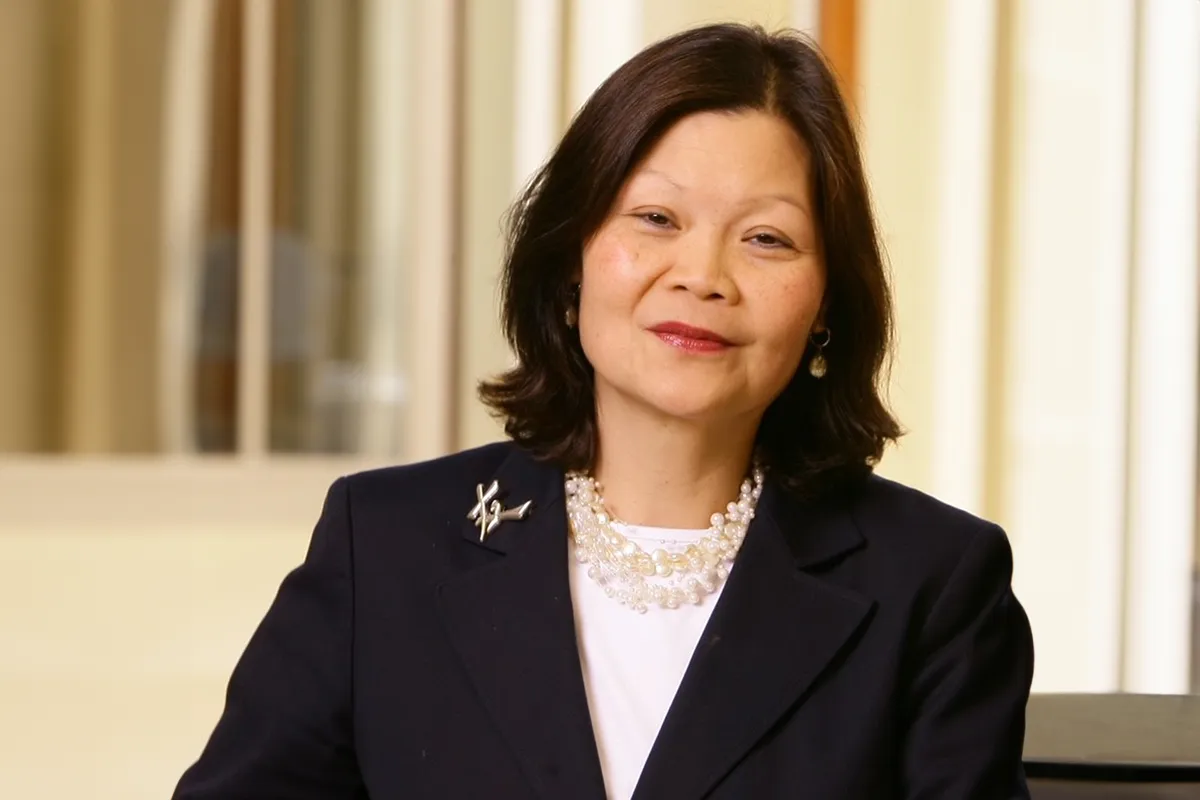The world leaders, artists, actors, musicians, politicians, experts, and other fascinating people who have appeared on the CBS newsmagazine 60 Minutes during its 50-year history have vastly different backgrounds. But, many share one experience: sitting in Florence Riccobono Johnson’s chair.
Ms. Johnson, a Class of 1945 graduate who goes by “Riccie”—a nickname bestowed by her graduate school pals—has been a makeup artist in news and entertainment for more than 65 years. After earning her undergraduate degree from Georgian Court in art, and an M.A. in Theater Arts from the Pasadena Playhouse Association’s School of the Theater in California, she and a classmate came to New York City to see if she could land work as an actor and singer. As the two were making their “rounds,” dropping off headshots and résumés at various agencies, a contact suggested she head over to NBC, which was hiring.
Video contributed by Denielle Balint Avila ’15.
A New Kind of Art
After filling out an application, Ms. Johnson was offered a job as a makeup artist, even though she had no experience, likely because of her art background, she assumes. She turned it down. Her friend talked her into taking it to get a foot in the door. So, she turned around and accepted the job.
At NBC, she worked for renowned makeup artist Dick Smith, who headed the department. He would later go on to win an Academy Award in 1985 for his makeup artistry on Amadeus. After a year, she moved to CBS, where she has been ever since.
A Lifetime of Memories
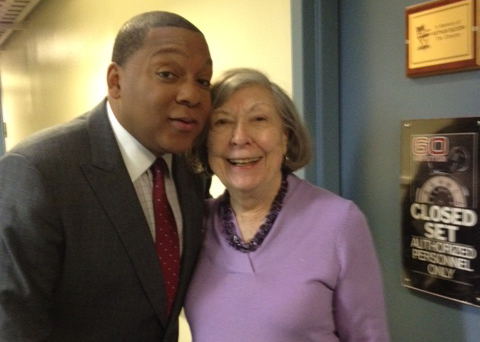
Ms. Johnson, now 94, has made up some of the world’s most famous faces, including news giants Edward R. Murrow, Walter Cronkite, Dan Rather, Mike Wallace, and Peter Jennings; and United States Presidents Johnson, Nixon, Ford, and Clinton. She also worked on the soap opera Guiding Light, and even made up the members of The Beatles for their first appearance on The Ed Sullivan Show. And while that may seem like it was a thrill, perhaps not so much for Ms. Johnson.
“Their reputation preceded them with the young people, but we really didn’t know who they were,” she says.
When someone is sitting in her chair, Ms. Johnson is careful to take her cue from them. Some want to chat. Some want to think. She adapts her conversation style to what each person needs.
“Sometimes, especially with the anchors, it’s the only time they have to just sit quietly and think about what they’re going to do,” she says. Her home base at the CBS studios in New York City allowed her to work and still manage an active family life. She has seven children and worked during each of her pregnancies, and “that wasn’t something that people did very much,” she says.
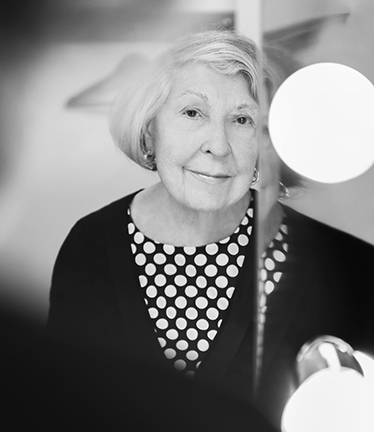
Part of her strength and drive comes from her time at Georgian Court, she says. At first, she was attracted to The Court because it was a Catholic university. Ms. Johnson’s faith is very important to her. She recalls a Jesuit ethics professor whose lessons stayed with her.
“That helped me my whole life. It gave me values,” she says.
The lessons she learned at Georgian Court help her to this day, she says. Ms. Johnson, who went to school during World War II, points to her yearbook dedication as testimony.
“My yearbook dedication offers thanks ‘To the patient and tireless efforts of the faculty of Georgian Court College. Their aim has ever been to create strength of mind and character so that we may not be lost in a world terrorized by disorder and intellectual chaos.’ Now, you know, that could be said today,” she says. “It was their goal to instill this in their students.”
Story, which also appeared in the Fall/Winter 2018 issue of GCU Magazine, contributed by Gwen Moran.

